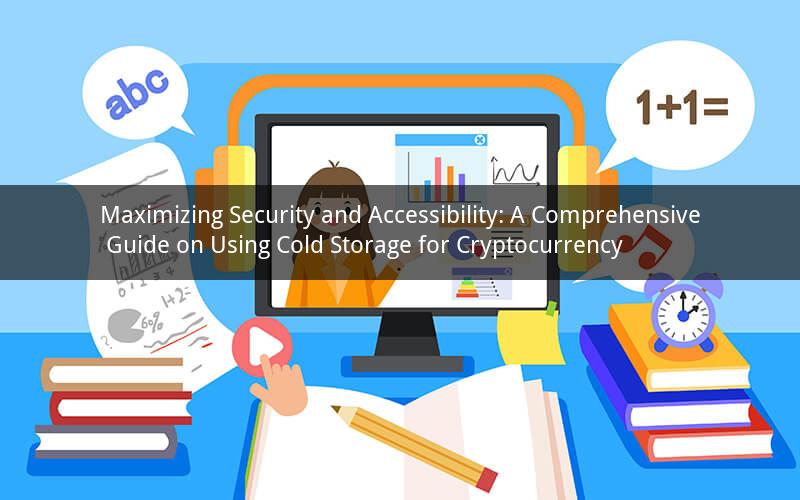
Introduction:
In the rapidly evolving world of cryptocurrency, the need for secure storage solutions has become more crucial than ever. Cold storage offers a robust and reliable method to safeguard your digital assets from potential online threats. This article delves into the intricacies of cold storage, highlighting its benefits, types, and practical steps to implement it effectively.
1. Understanding Cold Storage:
Cold storage refers to the practice of keeping cryptocurrency offline, thereby minimizing the risk of cyber attacks and unauthorized access. Unlike hot wallets, which are connected to the internet, cold storage devices are isolated from external networks, making them a more secure option for long-term storage.
2. Types of Cold Storage:
There are various types of cold storage solutions available, each with its own set of advantages and disadvantages. Let's explore some of the most popular options:
a. Hardware Wallets:
Hardware wallets are physical devices designed specifically for storing cryptocurrency. They offer a high level of security, as they generate and store private keys offline. Some well-known hardware wallets include Ledger Nano S, Trezor Model T, and KeepKey.
b. Paper Wallets:
Paper wallets are essentially pieces of paper containing the private and public keys of a cryptocurrency address. They are a cost-effective and simple way to store your assets, but they are susceptible to physical damage and loss.
c. Multi-Sig Wallets:
Multi-signature wallets require multiple private keys to authorize transactions, adding an extra layer of security. These wallets are often used by organizations or individuals who want to ensure that no single person has complete control over the funds.
3. Benefits of Cold Storage:
Cold storage offers several advantages over hot wallets, making it a preferred choice for long-term cryptocurrency holders:
a. Enhanced Security:
By keeping your cryptocurrency offline, you significantly reduce the risk of hacks, phishing attacks, and other online threats.
b. Decentralization:
Cold storage promotes decentralization, as it eliminates the need for third-party services and intermediaries.
c. Cost-Effective:
Compared to other storage solutions, cold storage is generally more cost-effective, as it does not require monthly fees or subscriptions.
4. Setting Up Cold Storage:
To use cold storage effectively, follow these steps:
a. Choose a Cold Storage Solution:
Select a cold storage solution that suits your needs, budget, and level of expertise. Consider factors such as security, ease of use, and compatibility with your cryptocurrency.
b. Generate a New Wallet:
Create a new wallet within your chosen cold storage solution. This will generate a unique public and private key pair.
c. Transfer Cryptocurrency:
Transfer your cryptocurrency from your hot wallet to the new cold storage wallet. Ensure that the transaction is confirmed before proceeding.
d. Backup Your Keys:
Backup your private and public keys in a secure location. In case of loss or damage to the cold storage device, these keys will be crucial for accessing your funds.
5. Best Practices for Cold Storage:
To maximize the security of your cold storage, consider the following best practices:
a. Use Strong Passwords:
Ensure that your cold storage device and wallet have strong, unique passwords to prevent unauthorized access.
b. Keep Your Device Safe:
Store your cold storage device in a secure, fireproof, and waterproof container. Avoid exposing it to extreme temperatures or physical damage.
c. Regularly Update Your Software:
Keep your cold storage solution's software up to date to protect against vulnerabilities and exploits.
d. Educate Yourself:
Stay informed about the latest security threats and best practices in cryptocurrency storage. This will help you make informed decisions and adapt to new challenges.
Frequently Asked Questions:
1. Q: Can I use cold storage for all types of cryptocurrency?
A: Yes, cold storage solutions can be used for storing various types of cryptocurrency, including Bitcoin, Ethereum, Litecoin, and more.
2. Q: Is cold storage completely immune to hacking?
A: While cold storage significantly reduces the risk of hacking, it is not entirely immune. It is crucial to follow best practices and stay informed about potential threats.
3. Q: Can I recover my cryptocurrency if I lose my cold storage device?
A: Yes, as long as you have backed up your private and public keys, you can recover your cryptocurrency by using a new cold storage device or wallet.
4. Q: Is cold storage more expensive than hot wallets?
A: Cold storage solutions can be more expensive than hot wallets, but they offer enhanced security and peace of mind for long-term cryptocurrency holders.
5. Q: Can I use cold storage for daily transactions?
A: Cold storage is primarily designed for long-term storage and not for daily transactions. For frequent transactions, it is recommended to use a hot wallet or an exchange with secure transaction capabilities.